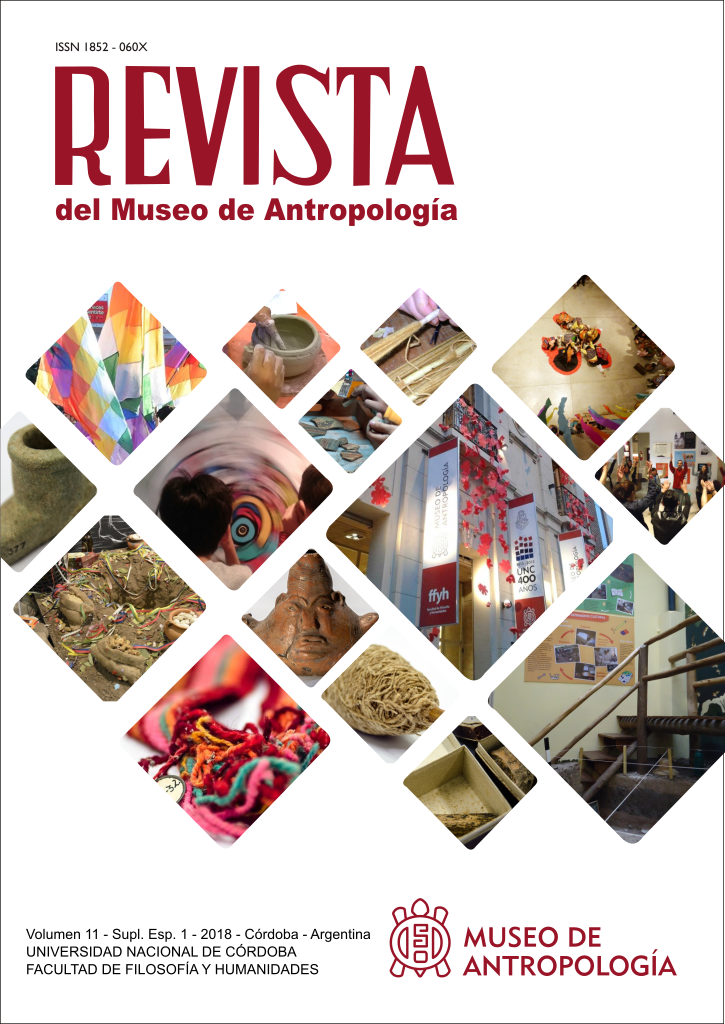Where does language come from?
DOI:
https://doi.org/10.31048/1852.4826.v11.n0.21456Palavras-chave:
language, anthropology, orality, writing, dreamResumo
It is always interesting to ask about the origin of things, but for this we also need to consider what it is for which we seek the beginning. What, then, is ‘language’ – voice, words, text? This leads to a number of questions: what are the current and earlier theories about how language began? did language come just once to humankind and from one single source? can language and verbal text come in dreams and visions (the paper discusses and analyses an ethnographically-attested example of this)? what of the source of the multiple languages we know today? how and in what form(s) do we create language anew? Much of the earlier theorising centred on speech – that is, on oral (in practice multi-sensory) language. But there are also the written forms of language. The emergence and the number of scripts is remarkable, as are, when we know them, their creators. How did these many forms of written language start? Language is a key human-divine art, among our greatest, to be celebrated. Yet in a sense we know so little about it and are right to continue our search for its origin.
Downloads
Referências
Ariel, M. (2010) Defining Pragmatics, Cambridge University Press.
Carter, R. (2004) Language and Creativity, London: Routledge.
Darwin, C. (1871) The Descent of Man and Selection in Relation to Sex, 2 vols. London: Murray.
Chomsky, N. (2007) The Architecture of Language, Oxford University Press. by Noam Chomsky
De Chardin, T. (1999) Writings (Modern Spiritual Masters Series), Orbis.
Dossey, L. (2013) One Mind: How Our Individual Mind Is Part of a Greater Consciousness and Why It Matters, Hay House.
Duranti, A. (1997) Linguistic Anthropology, Cambridge: Cambridge University Press
Finnegan, R. (2014) Communicating; The Multiple Modes of Human Communication, London: Routledge.
Finnegan, R. (2015a) Where is Language? London; Bloomsbury.
Finnegan, R. (2015b) Black Inked Pearl. A Girl’s Quest, New York: Garn Press.
Finnegan, R. (2016) Kate’s Black Ink Poems, Old Bletchley: Callender Press.
Harris, R. (ed.) (1996) The Origin of Language. Bristol: Thoemmes Continuum).
Jousse, M. (1925) ‘Le style oral rythmique et mnémotechnique chez les verbo-moteurs’, Revue Archives d Philosophie 2, 4.
Jung, C. G. (1991) The Archetypes and the Collective Unconscious (Collected Works of C. G. Jung), London: Routledge.
Kendon, A. (2004) Gesture.Visible Action as Utterance, Cambridge: Cambridge University Press.
MacNeill, D. (2005) Gesture and Thought, Chicago: University of Chicago Press.
Müller, M. (1861) ‘The theoretical stage, and the origin of language’, Lecture 9 from Lectures on the Science of Language, reprinted in Harris 1996.
Paget, R. (1930) Human speech: some observations, experiments, and conclusions as to the nature, origin, purpose and possible improvement of human speech. London: Routledge & Kegan Paul.
Pinker, S. (2009). Language Learnability and Language Development, Cambridge MA: Harvard University Press.
Sapir, E. (1921) Language, New York: Harcourt Brace.
Sheldrake, R. (2000) Dogs That Know When Their Owners Are Coming Home: And Other Unexplained Powers of Animals, Arrow. Swann, J. et al. (eds) (2011) Creativity in Language and Literature: The State of the Art, Palgrave-Macmillan.
Verschueren, J. et al. (eds) (1995) Handbook of Pragmatics. Amsterdam: Benjamins.
Wyndham, J. (1964) The Midwich Cuckoos, Harmondsworth: Penguin.
Downloads
Publicado
Edição
Seção
Licença
Os autores que têm publicações nesta revista aceitam os seguintes termos:
a. Os autores reterão os seus direitos autorais e garantirão à revista o direito de primeira publicação do seu trabalho, que estará sujeito à Licença de Atribuição Creative Commons (Licencia de reconocimiento de Creative Commons), que permite que terceiros compartilhem o trabalho enquanto o seu autor e a sua primeira publicação nesta revista.
b. Os autores podem adotar outros contratos de licença não exclusivos para a distribuição da versão do trabalho publicado (por exemplo, depositá-lo num arquivo eletrônico institucional ou publicá-lo num volume monográfico), desde que a publicação inicial nesta revista seja indicada.
v. É permitido e recomendado aos autores que divulguem os seus trabalhos na Internet (por exemplo, arquivos telemáticos institucionais ou no seu site) antes e durante o processo de envio, o que pode levar a trocas interessantes e aumentar citações do trabalho publicado. (Veja El efecto del acceso abierto - O efeito do acesso aberto.)












